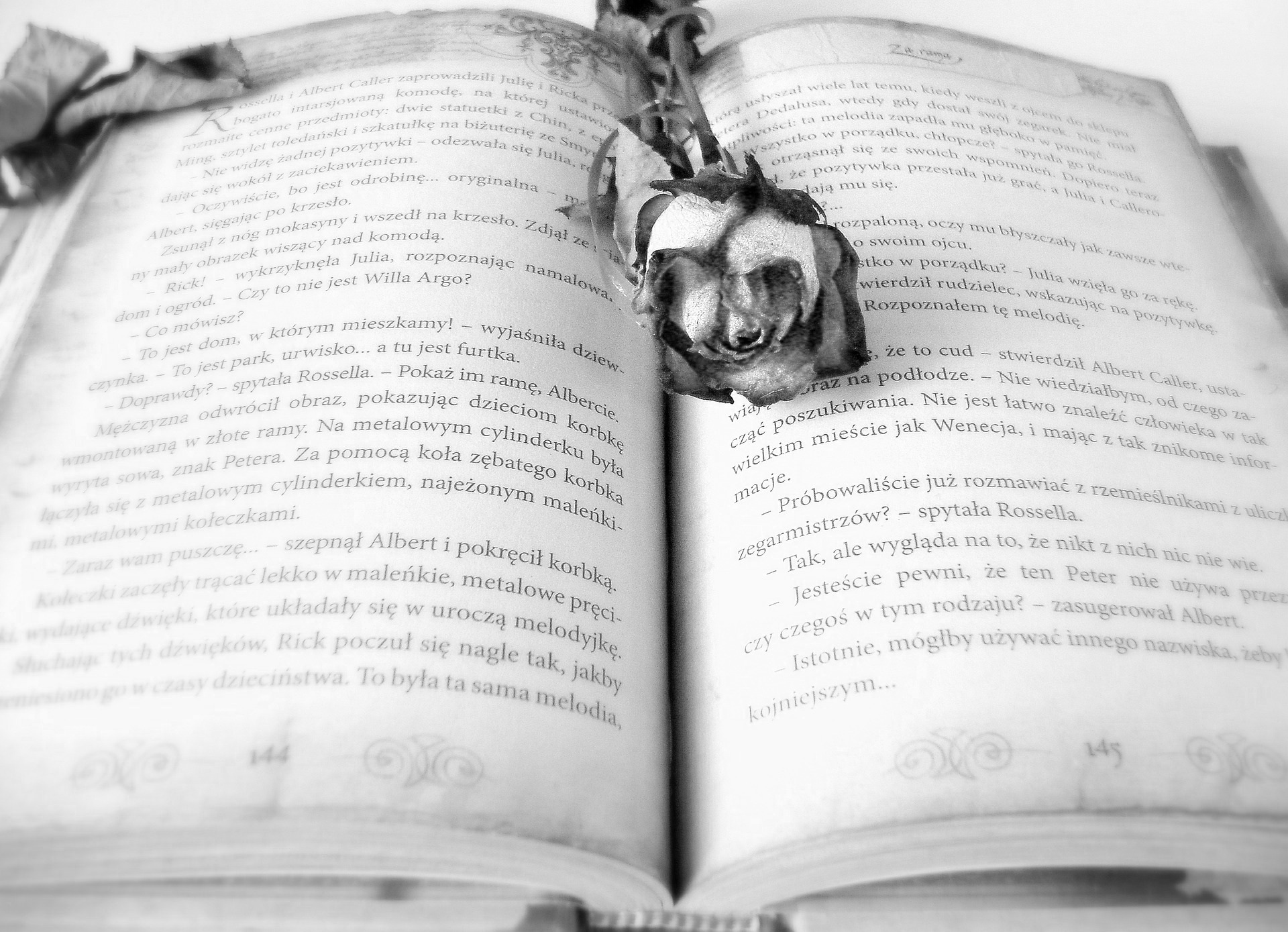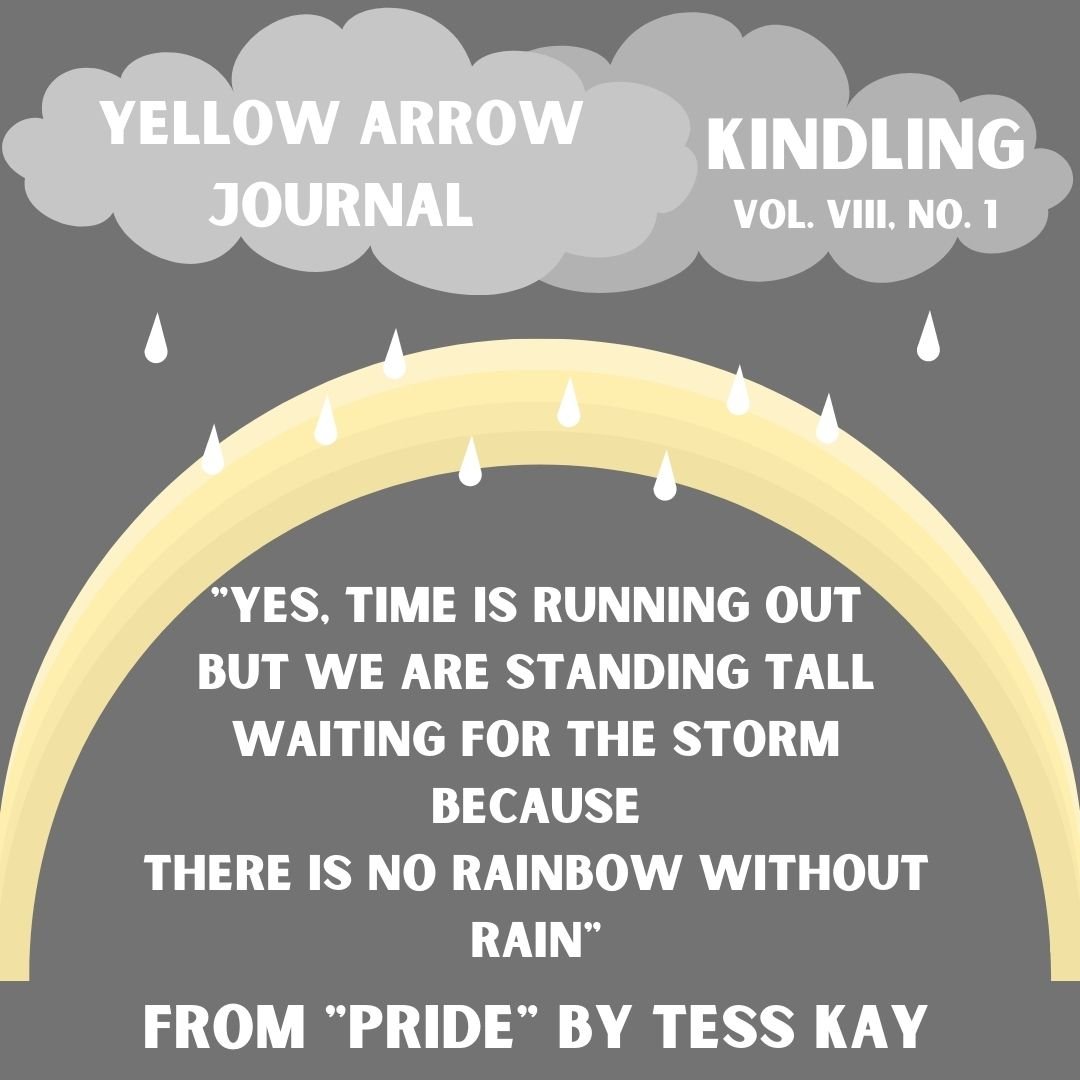
.WRITERS.ON.WRITING..Writers.on.Writing.
Get to know our authors, the foundation and heart of Yellow Arrow Journal, and what writing means to them through our monthly series.
W.o.W. #57
Maria S. Picone
Describe an early experience where you learned that language has power.
I’m five or six years old. My uncle has been diagnosed with ALS [Amyotrophic lateral sclerosis], my father, his brother, is struggling with workplace injuries and depression, and I’m at my grandmother’s (his mother’s) watching a TV special about Lou Gehrig in black and white with her, listening to his “luckiest man in the world” speech. The words are echoing in the stadium and in my head. There’s a black-and-white quality to the way meaning and irony enter my grandmother’s living room, something about the idea of “luck” that adults always tell me I’m the recipient of as an adoptee. I learn that “lucky” isn’t always a good thing, that it’s something people call you when facing bad circumstances.
What period of your life do you find you write about most often?
I find myself returning often to childhood, a well of memories and emotions that I fear losing access to as I get older. But sometimes it’s the most miserable times in my life that are the most vivid—graduating into the recession, losing loved ones, struggling with mental health and self-harm.
What does your inner writing voice tell you?
I’m not sure if I have an inner writing voice, but aside from the compulsion to check on the dishes and the cleanliness of the bathrooms when I sit down to write, a lot of advice to wait and be patient has been inculcated in me from various sources. A type of Rome-wasn’t-built-in-a-day feeling toward my writing career and body of work.
How did you first publish your writing and what was it?
My first pieces, translations of Rilke’s French prose poems, were published in Able Muse in 2014. At the time, and when I came back to writing in late 2019, I was desperate for credits so I’m lucky that I had such a great experience with some of my earliest publications. As for self-publishing, I think grade school has great bookmaking experiences—construction paper, staples, visual illustration. and all that. I wrote my first book when I was six and my intended audience were classmates who were reading picture books.
Maria S. Picone/ 수영 is a queer Korean American adoptee who won Cream City Review’s 2020 Summer Poetry Prize. Her debut chapbook, Adoptee Song, was published in late 2022. She has been published in Tahoma Literary Review, The Seventh Wave, Fractured Lit, and more, including Best Small Fictions 2021. Her work has been supported by The Juniper Institute, Palm Beach Poetry Festival, Lighthouse Writers Workshop, GrubStreet, Kenyon Review, and Tin House. She is Chestnut Review’s managing editor, Hanok Review’s poetry editor, and Uncharted Mag’s associate editor. Find out more at mariaspicone.com or on Twitter @mspicone.
“They need to invent a Korean word for adoptee sorrow” was included in Yellow Arrow Journal PEREGRINE, Vol. VII, No. 2, Fall 2022. You can find Maria reading her poem with other PEREGRINE authors in Fly to Me, Speak to Me: A PEREGRINE Reading on the Yellow Arrow YouTube Channel.
.Writers.on.Writing.
Get to know our authors, the foundation and heart of Yellow Arrow Journal, and what writing means to them through our monthly series.
W.o.W. #56
Laura Rockhold
What is the first book that made you cry? What book is on the top of your to-be-read pile?
As a child, Charlotte’s Web by E.B. White. As a mother while reading to my daughter, The Giving Tree by Shel Silverstein and What The Road Said by Cleo Wade.
[In December, I read] All Souls by Saskia Hamilton for my reading group. On top of my personal list is The Search for the Genuine, a book of essays by Jim Harrison.
How did you first publish your writing and what was it?
I became dedicated to submitting my poetry in 2021 and first published poems in 2022. The first publication in 2022 included two poems, “One Story High” and “(I Cried For You) In The Rain.”
What does your inner writing voice tell you?
Yes.
What are you currently working on?
I am currently collaborating with a local artist on two different 2024 projects that combine poetry and visual art as an experience in the community. I am also participating with The Witness Project, a local group of writers engaged in projects that draw attention to ecological relationships between humans and nature and promote solutions to existing systemic racial and economic inequities in the Twin Cities. And I am seeking publication of my first collection of poetry and painting occasionally.
Laura Rockhold is a poet and visual artist living in Minnesota. She is the inventor of the golden root poetic form and 2022 recipient of the Bring Back The Prairies Award and Southern MN Poets Society Award. Her work has been nominated for Best of the Net and is published or forthcoming in Black Fox Literary Magazine, Cider Press Review, deLuge Journal, Scarlet: A Literary Journal, The Ekphrastic Review, The Hopper, Yellow Arrow Journal, and elsewhere. Find her at laurarockhold.com.
“LICHEN BLOOMS” was included in Yellow Arrow Journal PEREGRINE, Vol. VII, No. 2, Fall 2022 while “LETTER TO MY DAUGHTER” was included in Yellow Arrow Journal’s issue EMBLAZON, Vol. VIII, No. 2, Fall 2023. Laura participated in the readings for both publications, which can be found on the Yellow Arrow YouTube channel.
.Writers.on.Writing.
Get to know our authors, the foundation and heart of Yellow Arrow Journal, and what writing means to them through our monthly series.
W.o.W. #55
Dani Sacchi
What period of your life do you find you write about most often?
I tend to focus on the present day or the first eight years of my life when I lived in the Bronx. Those early years intensely influenced so much of the person I became as a teenager, from my attachment style to my behaviors. I have strong memories, beautiful and painful, from that time in my childhood that I lean on when writing stories.
What is a good writing habit you have picked up?
Something that completely transformed my editing post-rough draft is a tip I got from listening to Ocean Vuong talk about workshopping. I learned not to approach my writing with the intent to fix, but rather in the first one to three weeks, notice patterns, observe, learn the true intent of the piece, and then during the fourth and fifth weeks begin suggestions, criticisms, and making changes that align with the purpose of the story.
What does your inner writing voice tell you?
What are you waiting for?
If you could tell your younger writing self anything, what would it be?
Don’t allow your lack of knowledge or experience to instill a fear of making mistakes. Make mistakes. Be playful. Have fun. Be vulnerable. This is your power.
An emerging voice in Orlando, Florida, Dani Sacchi brings a diverse background to her writing. With a bachelor’s degree in English under her belt, she has honed her craft through experience as a copywriter, high school teacher, and recruiter. Balancing a full-time job, she’s carving her path in the literary world, all while dreaming of returning to school for her master’s degree. At home, she finds inspiration alongside her loving husband and dog.
Dani’s incredible piece, “BOTH/AND,” was included in Yellow Arrow Journal’s issue EMBLAZON, Vol. VIII, No. 2, Fall 2023. She joined other EMBLAZON readers for Fleeting Moments, Inscribed: A Reading of EMBLAZON on November 29; the reading is now available on the Yellow Arrow YouTube channel.
Learn more about Dani on Instagram @officialdani and at danisacchi.squarespace.com.
.Writers.on.Writing.
Get to know our authors, the foundation and heart of Yellow Arrow Journal, and what writing means to them through our monthly series.
W.o.W. #54
Tess Kay
If you could tell your younger writing self anything, what would it be?
Don’t be afraid to share your writing. The poems/stories want to be read.
If you could have dinner with anyone, who would it be and why?
So many people. Perhaps, Amedeo Modigliani. Such a talented (and tragic) painter.
What does your inner writing voice tell you?
Write whatever comes to you at the moment. You can always question (and discard) it later.
What are you currently working on (even nonwriting things)?
A novel in the Czech language. And I am always writing poems or fragments of poems and stories.
Tess Kay is a transgender woman writer, poet, and lyricist. She was born and raised in the Czech Republic and later found her home in Minneapolis, Minnesota. Similarly to Minnesota’s long, cold winters and warm summers, Tess, in her writing, combines themes of loneliness and isolation with moments of hope and faith in fellow human beings.
Tess’ incredible poem, “Pride,” was included in Yellow Arrow Journal’s issue KINDLING, Vol. VIII, No. 1, Spring 2023.
Learn more about Tess on Instagram @tessdajc and Facebook @tess.dajc.
.Writers.on.Writing.
Get to know our authors, the foundation and heart of Yellow Arrow Journal, and what writing means to them through our monthly series.
W.o.W. #53
Darah Schillinger
What word do you find yourself using most often in your writing?
I write about god a lot, even though I’m not particularly religious. I also know I write about nature in almost everything. If it’s not directly about nature it has natural imagery. I can’t escape it, and I don’t want to.
What period of your life do you find you write about most often?
Present day. I tend to write what I know, and it’s almost always what I’m feeling or inspired by in the very moment (though it’s probably because I’m young).
What is your writing Kryptonite? Your most interesting writing quirk?
I can’t force myself to write. If I have an assignment and I don’t have time to wait for inspiration, I will almost always pull from my notes app. That’s where all of my ideas, good and bad, are kept.
What does your inner writing voice tell you?
“Writing is what you’re good at, but don’t stress yourself out of creativity. When you’re ready to write, I’ll be there waiting.”
Darah Schillinger is a Baltimore, Maryland, poet working toward her professional writing degree at Towson University. She has previously published poetry in the St. Mary’s literary journal, AVATAR, on the Spillwords Press website, in the Maryland Bards Poetry Review 2022, in Yellow Arrow Journal, and in the first edition of Empyrean Magazine. Darah’s first poetry chapbook, when the daffodils die, was released in July 2022 by Yellow Arrow Publishing, and her first full-length collection is currently a work in progress.
Darah’s incredible poem, “i walk home at 10:03 pm,” was included in Yellow Arrow Journal’s issue UpSpring (Vol. VII, No. 1). And for the month of October only, you can purchase a copy of when the daffodils die from the Yellow Arrow bookstore for only $12.00. Let’s celebrate its 12-month anniversary together; get your copy today at yellowarrowpublishing.com/store/daffodils-die-paperback.
Learn more about Darah on Instagram @darahschillinger or @brokewritersociety and Facebook @darah.schillinger.











